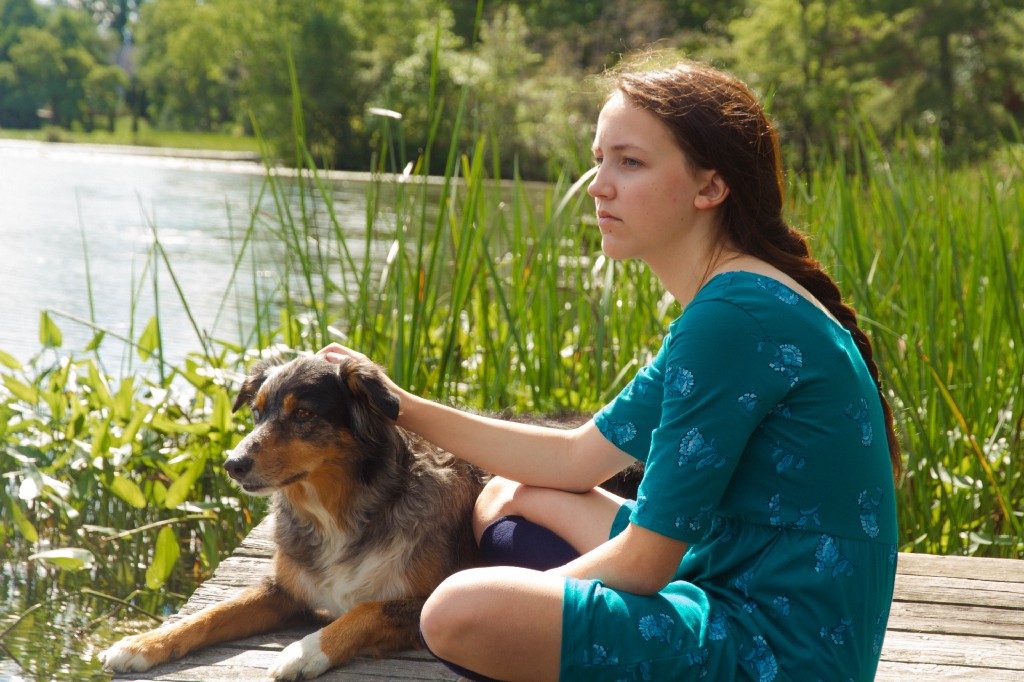Ingrid Veninger is a writer, producer, and director whose work has premiered at numerous festivals around the world. Previous feature films include “He Hated Pigeons,” “I am a Good Person/I am a Bad Person,” and “Only.” In 2014, she initiated the pUNK Films Femmes Lab to foster feature films written and directed by Canadian women. The lab is sponsored by Academy Award winner Melissa Leo.
“Porcupine Lake” will premiere at the 2017 Toronto International Film Festival on September 10.
W&H: Describe the film for us in your own words.
IV: “Porcupine Lake” is about a hot and hazy summertime when you’re 13 and, more than anything else, you want a friend who makes you feel less alone in the world.
W&H: What drew you to this story?
IV: I wanted to tell a story about the complicated dynamics between young girls that reflected my experience. A story about the kind of friendship that changes the course of your life.
W&H: What do you want people to think about when they are leaving the theater?
IV: I’d like people not only to remember being 13, but actually have some kind of physical chemical reaction and feel 13 again — complete with hot flashes of uncertainty, confusion, and great beauty.
Ultimately, I’d like people to have a heart-trip.
W&H: What was the biggest challenge in making the film?
IV: Casting was a big challenge. I wanted real 13-year-olds in the leads, not 16-year-olds playing younger.
I had a teen actor cancel two weeks before production, which had a domino effect because I was building an on-screen family; losing one actor actually meant re-casting five roles. The roles of the parents and the extensive supporting cast were comprised of veteran actors and first timers.
For me, the beauty and the challenge of directing fiction is to make the gazillion efforts seem effortless.
W&H: How did you get your film funded? Share some insights into how you got the film made.
IV: First, I successfully applied to the Canadian Feature Film Fund at Telefilm Canada. Second, I secured a Canadian distributor, Films We Like, who paid a minimum guarantee. Next, I submitted tax credit applications — both provincial and federal — which is a lengthy process. Lastly, I successfully applied for equity investment to Bell Media’s Harold Greenberg Fund.
I like the producing side of making movies — not as much as directing, but I can really appreciate a solid budget and a well-crafted agreement. For the first time, I worked with an executive producer, Randi Kirshenbaum, and financial advisor, Craig Merritt, who have shared the load with me.
W&H: What does it mean for you to have your film play at TIFF?
IV: A world premiere at TIFF means a sold-out theater and a fantastic launch pad for a wider international release.
Today, we printed stickers and received our confirmed TIFF schedule, so I’m prepping the postcards, planning our TIFF party, sending hundreds of emails each day, living on social media, and eating lots of ice cream.
All friends of Women and Hollywood are invited to our TIFF party. Just join our Facebook page for party details.
W&H: What’s the best and worst advice you’ve received?
IV: Best advice: Always be true to your word. Appreciate the hard work of others. Take nothing for granted.
Worst advice: So much bad advice. Where do I start? How about the worst advice from this month: Cut your dreadlocks if you want to get ahead in this industry. Stop making “small movies” because no one will believe you can make something bigger (Oh, I can, try me). Your demo reel needs a car crash and more sex.
W&H: What advice do you have for other female directors?
IV: My advice is not for other female directors. It’s for everybody else: #HireHer.
W&H: Name your favorite woman-directed film and why.
IV: It’s impossible for me to name just one, so here are five:
Céline Sciamma’s “Girlhood,” Maren Ade’s “Toni Erdmann,” Pia Marais’ “At Ellen’s Age,” Anne Émond’s “Nelly,” and Ava DuVernay’s “13th.”
Their work is potent, fierce, personal, inspiring, and urgent.
W&H: There have been significant conversations over the last couple of years about increasing the amount of opportunities for women directors yet the numbers have not increased. Are you optimistic about the possibilities for change? Share any thoughts you might have on this topic.
IV: More opportunities for women directors continue to be a challenge. Canada is moving in the right direction with TIFF’s recent “Share Her Journey” initiative and Telefilm Canada’s measures to achieve a balanced production portfolio — at all budget levels — by 2020. This will reflect gender parity amongst directors, writers, and producers.
“Porcupine Lake” was born out of the support of an incredible circle of women. I’m optimistic that as long as we support and champion each other from the inside, the rest of the world will eventually catch up. Why? Because our passion and perseverance are undeniable.







